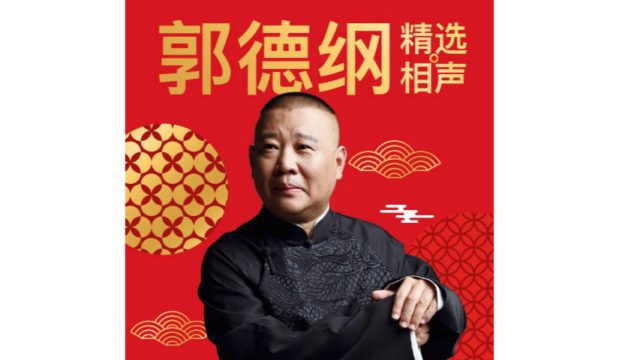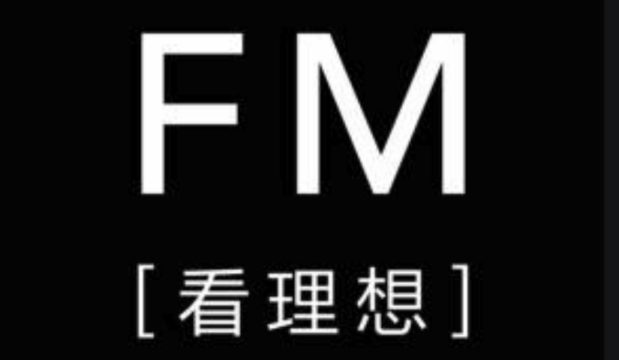China Arts & Entertainment
Top 10 of Popular Chinese Podcasts of 2019 (by What’s on Weibo)
What are Chinese podcast app users listening to? An overview.
Published
5 years agoon
By
Jialing Xie
As the podcasting industry only seems to become more thriving around the world, What’s on Weibo tunes into China’s podcast market and selects ten of the most popular Chinese podcasts for you.
Ever since it first made its entrance into the entertainment industry, the podcast – a term coined in 2004 – has kept growing in listenership in most Western countries.
The same holds true for China, where podcasts are mainly concentrated on a couple of bigger online audio streaming platforms.
What are the most ear-catching podcast streaming services in China now? While various podcast apps have been competing with each other to attract users with their trending content, Ximalaya is one of the most popular ones as it offers the widest range of content of all major podcast apps in China. The app was first launched in 2013, and has been a top-scoring app ever since.
In terms of popularity, Ximalaya (喜马拉雅) is closely followed by DragonflyFM (蜻蜓FM), LycheeFM(荔枝FM), and a series of other podcast platforms with each implementing different business models.

How do we know what’s trending on these podcast apps? Based on user clicks and other metrics, Ximalaya has its own ranking lists of popular podcasts for five major categories: classics, audiobooks,crosstalk & storytelling, news, music, and entertainment.
DragonflyFM (蜻蜓FM) and other podcast apps also have their own rankings for even more narrowly defined categories, although these rankings often feature the same ‘most popular’ podcasts as Ximalaya and other apps.
To give you an impression and an overview of the kind of podcasts that are currently most popular in China, we have made a selection of trending podcasts across various audio apps, with some notes that might be useful for those tuning into these podcasts as learners of Mandarin (all of these popular podcasts use Mandarin).
Please note that this is not an ‘official’ top 10 list, but one that is compiled by What’s on Weibo based on various popular ranking lists in different categories. Guo Degang’s crosstalk and storytelling podcast, for instance, is ranked as a number one popular podcast on both Ximalaya and Dragonfly FM, which is why it comes in highest in our list, too.
What’s on Weibo is independent and is not affiliated with any of these audio platforms or podcasts.
#1 Guo Degang: Crosstalk Collection of 21 Years (郭德纲21年相声精选)

Category: Crosstalk & Storytelling
Duration: 20-90 min/episode
About:
Guo Degang (郭德纲, Guō Dégāng) is one of the most successful crosstalk comedians in China. In 1995, he founded his own crosstalk society, Deyun Society (德云社, Dé Yún Shè), which aims to “bring crosstalk back to traditional theaters.” Guo Degang has succeeded in making the general public pay more attention to crosstalk (相声, xiàngsheng), a traditional Chinese art performance that started in the Qing Dynasty. Like many other traditional Chinese arts, crosstalk performers are expected to have had a solid foundation that is often referred to as “kung fu” (功夫, Gōngfū) before they can perform onstage. Among the many collections attempted to gather Guo Degang’s crosstalk and storytelling performance, this podcast is probably the most comprehensive attempt thus far to gather Guo’s crosstalk and storytelling – it lists Guo’s best performances throughout his nearly three-decade career.
Tips if you are a Mandarin learner:
This podcast contains a lot of word jokes, special idioms, and cultural and historical context, making it more suitable for advanced Mandarin learners. But beginners, don’t be discouraged! Get your feet wet with Guo’s sense of humor if you like a challenge. Accent Alert: you will hear the Tianjin accent in Guo’s performance, which is also encouraged by the crosstalk & storytelling art genre.
#2 King Fafa (发发大王)

Category: Talkshow & Entertainment
Duration: 1 – 2 hr/episode
About:
This podcast provides a glimpse into Chinese society through the lens of ordinary people and their own stories. These stories range from a Chinese mother going through struggles to give birth to her child in the UK as an immigrant, to the love-and-hate relationship between Chinese youngsters and marriage brokers. Or how about Huawei employees’ personal anecdotes, or a self-made millionaire’s confession on his sudden realization of the true meaning of life? Looking beneath the surface of people’s lives with a compassionate and sometimes somewhat cynical attitude, the talk show podcast Fafa King has won over Chinese podcast listeners.
Tips if you are a Mandarin learner:
Enrich your vocabulary and phrases bank with this daily-conversation based podcast. Suitable for medium-level Mandarin learners.
Accent Alert: you will hear mostly Beijinger accents from the two hosts.
#3 Chasing Tech, Teasing Arts (追科技撩艺术)

Category: Technology & Art / Business podcas
Duration: 30 min -1 hr/episode
About:
This Doko.com podcast allows listeners to get new perspectives on technology, art, environmental protection, and business through the voice of aspiring Chinese youths from within China and abroad. Doko.com used to be a digital marketing agency but now describes itself as a “group of people passionate about the internet, a diverse, interesting and exciting place.”
Tips if you are a Mandarin learner:
Doko’s podcast features interviews between the host and guests on topics mainly relating to art and technology in a semi-formal setting. Listen to learn how to discuss these topics in Mandarin. Accent Alert: you will hear the host speaking Mandarin with a slight accent and guest speakers with various accents of their origin.
#4 Let Jenny Tell You (潘吉Jenny告诉你)

Full title: Let Jenny Tell You – Learn English and Talk about America (潘吉Jenny告诉你-学英语聊美国), Link to podcast
Category: Education
Duration: 10 – 20 min/episode
About:
Let Jenny Tell You is one of the most popular podcasts around for Chinese listeners to learn English. Hosted by Jenny and Adam, the podcast offers quite rich and unique content, discussing various topics often relating to Chinese culture and news, and of course, diving deeper into the English language.
Tips if you are a Mandarin learner:
As a language learning podcast, this podcast is actually perfect for intermediate learners of Chinese; it works both ways for Chinese-English learners as well as for English speakers who are interested in learning Mandarin. Because Adam speaks English, you always know what the podcast is about. Accent Alert: Jenny (the host) speaks fairly standard Mandarin with minor accents.
#5 Stories Across the Globe (环球故事会)

Category: Society & Culture
Duration: 20 min/episode (length differs on Podcasts App Store)
About:
A skillful narrator digs into stories behind the news, examining various topics involving cultures, history, politics, international relations. This podcast, by China’s state-owned international radio broadcaster, often comes up as a suggestion on various platforms, and also seems to be really popular because of its news-related stories.
Tips if you are a Mandarin learner:
Well-paced speech with an intimate tone, this podcast is a good source for learning new vocabulary and improving your pronunciation if you are already an advanced learner of Mandarin. Accent Alert: the host speaks fairly standard Mandarin with a Beijing accent.
#6 Watching Dreams Station (看理想电台)

Category: Interviews & Culture
Duration: 20 – 40 min/episode
About:
A fun and informative podcast with varied content coverage, this podcast has a refreshing tone and smooth transitions between narratives and (expert) interview footage. A great source to learn more about what Chinese ‘hipsters,’ often referred to as literary and arty youth (文青, wén qīng) care about with regular mentions of social media stories.
Tips if you are a Mandarin learner:
This podcast has relatively slow-paced speech covering various topics, which helps to make you more familiar with new vocabulary and practice how to explain things in Mandarin. Accent Alert: you will hear hosts speak fairly standard Mandarin with minor accents.
#7 Black Water Park (黑水公园)

Category: TV & Movies, Talkshow
Duration: 1 – 1.5 hr/episode
About:
Learn what’s commonly discussed among Chinese young adults about movies and TV shows through these entertaining conversations between the two good friends Ài Wén and Jīn Huā-er.
Tips if you are a Mandarin learner:
Suitable for medium-to-advanced-level Mandarin learners; highly engaging conversations involving lots of slang and colloquial expressions.
Accent Alert: the hosts speak with recognizable Beijinger accents, so be prepared.
#8 The Sketch is Here (段子来了)

Category: Comedy
Duration: 45 min/episode
About:
With 5.426 billion user clicks on Ximalaya, this podcast featuring funny sketches is super popular and has become a household name in China’s podcast market. It offers a taste of humor appreciated by many Chinese, which is very different from what you’d get from a podcast in the West within the same category.
Tips if you are a Mandarin learner:
Great source to learn colloquial Mandarin and funny ice-breakers, but challenging as humor is intrinsically linked with inside jokes and word play. Accent Alert: the host has what’s considered a soothing voice and speaks fairly standard Mandarin.
#9 Ruixi’s Radio (蕊希电台)

Category: Lifestyle & Bedtime
Duration: 10 min/episode
About:
One way to examine culture is to look at what people generally worry about the most. This podcast, that always starts with the soft voice of Ruixi (the host) asking listeners “Hey, are you ok today?”, focuses on a darker side of society and addresses the social and mental struggles that adults in China are facing. Ruixi’s Radio is one of those podcasts that enjoy equivalent popularity across several podcast platforms, which indicates strong branding. For many people, it’s a soothing podcast to listen just before bedtime.
Tips if you are a Mandarin learner:
The slow-paced monologue using language easy to understand makes a great learning material for beginning learners. Accent Alert: Ruixi (the host) speaks fairly standard Mandarin with insignificant accents.
#10 Stories FM (故事FM)

Category: Stories & Bedtime
Duration: 20 – 30 min/episode
About:
Described by the New York Times as a “rarity in a media landscape full of state propaganda and escapist entertainment,” Gushi FM was launched with the idea “Your story, your voice.” As one of China’s popular audio programs, Gushi FM features stories told by ordinary Chinese of various backgrounds.
Tips if you are a Mandarin learner:
As a collection of monologues that detail stories, describe emotions, and argue ideas, this podcast suits advanced level learners. Accent Alert: in every episode, guests with speaking and telling stories in their own local dialects.
Want to understand more about podcasts in China? We’d recommend this insightful article on the Niemanlab website.
Because there are many more popular Chinese podcasts we would like to share with you, this probably will not be our only list. A follow-up list will also contain other favorites such as Two IT Uncles (两个IT大叔), BBPark (日坛公园), and One Day World ( 一天世界).
Want to recommend another Chinese podcast? Please leave a comment below this article or tweet us at @whatsonweibo, leave a message on Instagram or reach out via Facebook.
By Jialing Xie, with contributions by Manya Koetse
Spotted a mistake or want to add something? Please let us know in comments below or email us. First time commenters, please be patient – we will have to manually approve your comment before it appears.
©2019 Whatsonweibo. All rights reserved. Do not reproduce our content without permission – you can contact us at info@whatsonweibo.com
Jialing is a Baruch College Business School graduate and a former student at the Beijing University of Technology. She currently works in the US-China business development industry in the San Francisco Bay Area. With a passion for literature and humanity studies, Jialing aims to deepen the general understanding of developments in contemporary China.

China Arts & Entertainment
“Old Bull Eating Young Grass”: 86-Year-Old Chinese Painter Fan Zeng Marries 36-Year-Old Xu Meng
Online reactions to the news of Fan’s marriage to Xu Meng, his fourth wife, reveal that the renowned artist is not particularly well-liked among Chinese netizens.
Published
1 week agoon
April 18, 2024
The recent marriage announcement of the renowned Chinese calligrapher/painter Fan Zeng and Xu Meng, a Beijing TV presenter 50 years his junior, has sparked online discussions about the life and work of the esteemed Chinese artist. Some netizens think Fan lacks the integrity expected of a Chinese scholar-artist.
Recently, the marriage of a 86-year-old Chinese painter to his bride, who is half a century younger, has stirred conversations on Chinese social media.
The story revolves around renowned Chinese artist, calligrapher, and scholar Fan Zeng (范曾, 1938) and his new spouse, Xu Meng (徐萌, 1988). On April 10, Fan announced their marriage through an online post accompanied by a picture.
In the picture, Fan is seen working on his announcement in calligraphic form.

Fan Zeng announces his marriage on Chinese social media.
In his writing, Zeng shares that the passing of his late wife, three years ago, left him heartbroken, and a minor stroke also hindered his work. He expresses gratitude for Xu Meng’s care, which he says led to his physical and mental recovery. Zeng concludes by expressing hope for “everlasting harmony” in their marriage.
Fan Zeng is a calligrapher and poet, but he is primarily recognized as a contemporary master of traditional Chinese painting. Growing up in a well-known literary family, his journey in art began at a young age. Fan studied under renowned mentors at the Academy of Fine Arts in Beijing, including Wu Zuoren, Li Keran, Jiang Zhaohe, and Li Kuchan.
Fan gained global acclaim for his simple yet vibrant painting style. He resided in France, showcased his work in numerous exhibitions worldwide, and his pieces were auctioned at Sotheby’s and Christie’s in the 1980s.[1] One of Fan’s works, depicting spirit guardian Zhong Kui (钟馗), was sold for over 6 million yuan (828,000 USD).

Zhong Kui in works by Fan Zeng.
In his later years, Fan Zeng transitioned to academia, serving as a lecturer at Nankai University in Tianjin. At the age of 63, he assumed the role of head of the Nankai University Museum of Antiquities, as well as holding various other positions from doctoral supervisor to honorary dean.
By now, Fan’s work has already become part of China’s twentieth-century art history. Renowned contemporary scholar Qian Zhongshu once remarked that Fan “excelled all in artistic quality, painting people beyond mere physicality.”
A questionable “role model”
Fan’s third wife passed away in 2021. Later, he got to know Xu Meng, a presenter at China Traffic Broadcasting. Allegedly, shortly after they met, he gifted her a Ferrari, sparking the beginning of their relationship.

A photo of Xu and her Hermes Birkin 25 bag has also been making the rounds on social media, fueling rumors that she is only in it for the money (the bag costs more than 180,000 yuan / nearly 25,000 USD).
On Weibo, reactions to the news of Fan’s marriage to Xu Meng, his fourth wife, reveal that the renowned artist is not particularly well-liked among netizens. Despite Fan’s reputation as a prominent philanthropist, many perceive his recent marriage as yet another instance of his lack of integrity and shamelessness.

Fan Zeng and Xu Meng. Image via Weibo.
One popular blogger (@好时代见证记录者) sarcastically wrote:
“Warm congratulations to the 86-year-old renowned contemporary erudite scholar and famous calligrapher Fan Zeng, born in 1938, on his marriage to Ms Xu Meng, a 50 years younger 175cm tall woman who is claimed to be China’s number one golden ratio beauty. Mr Fan Zeng really is a role model for us middle-aged greasy men, as it makes us feel much less uncomfortable when we’re pursuing post-90s youngsters as girlfriends and gives us an extra shield! Because if contemporary Confucian scholars [like yourself] are doing this, then we, as the inheritors of Confucian culture, can surely do the same!“
Various people criticize the fact that Xu Meng is essentially just an aide to Fan, as she can often be seen helping him during his work. One commenter wrote: “Couldn’t he have just hired an assistant? There’s no need to turn them into a bed partner.”
Others think it’s strange for a supposedly scholarly man to be so superficial: “He just wants her for her body. And she just wants him for his inheritance.”
“It’s so inappropriate,” others wrote, labeling Fan as “an old bull grazing on young grass” (lǎoniú chī nèncǎo 老牛吃嫩草).
Fan is not the only well-known Chinese scholar to ‘graze on young grass.’ The famous Chinese theoretical physicist Yang Zhenning (杨振宁, 1922), now 101 years old, also shares a 48-year age gap with his wife Weng Fen (翁帆). Fan, who is a friend of Yang’s, previously praised the love between Yang and Weng, suggesting that she kept him youthful.

Older photo posted on social media, showing Fan attending the wedding ceremony of Yang Zhenning and his 48-year-younger partner Weng Fen.
Some speculate that Fan took inspiration from Yang in marrying a significantly younger woman. Others view him as hypocritical, given his expressions of heartbreak over his previous wife’s passing, and how there’s only one true love in his lifetime, only to remarry a few years later.
Many commenters argue that Fan Zeng’s conduct doesn’t align with that of a “true Confucian scholar,” suggesting that he’s undeserving of the praise he receives.
“Mr. Wang from next door”
In online discussions surrounding Fan Zeng’s recent marriage, more reasons emerge as to why people dislike him.
Many netizens perceive him as more of a money-driven businessman rather than an idealistic artist. They label him as arrogant, critique his work, and question why his pieces sell for so much money. Some even allege that the only reason he created a calligraphy painting of his marriage announcement is to profit from it.
Others cast doubt on his status as a Chinese calligraphy ‘grandmaster,’ noting that his calligraphy style is not particularly impressive and may contain typos or errors. His wedding announcement calligraphy appears to blend traditional and simplified characters.

Netizens have pointed out what looks like errors or typos in Fan’s calligraphy.
Another source of dislike stems from his history of disloyalty and his feud with another prominent Chinese painter, Huang Yongyu (黄永玉). Huang, who passed away in 2023, targeted Fan Zeng in some of his satirical paintings, including one titled “When Others Curse Me, I Also Curse Others” (“人骂我,我亦骂人”). He also painted a parrot, meant to mock Fan Zeng’s unoriginality.

Huang Yongyu made various works targeting Fan Zeng.
In retaliation, Fan produced his own works mocking Huang, sparking an infamous rivalry in the Chinese art world. The two allegedly almost had a physical fight when they ran into each other at the Beijing Hotel.

Fan Zeng mocked Huang Yongyu in some of his works.
Fan and Huang were once on good terms though, with Fan studying under Huang at the Central Academy of Fine Arts in Beijing. Through Huang, Fan was introduced to the renowned Chinese novelist Shen Congwen (沈从文, 1902-1988), Huang’s first cousin and lifelong friend. As Shen guided Fan in his studies and connected him with influential figures in China’s cultural circles, their relationship flourished.
However, during the Cultural Revolution, when Shen was accused of being a ‘reactionary,’ Fan Zeng turned against him, even going as far as creating big-character posters to criticize his former mentor.[2] This betrayal not only severed the bond between Shen and Fan but also ended Fan’s friendship with Huang, and it is still remembered by people today.
Fan Zeng’s behavior towards another former mentor, the renowned painter Li Kuchan (李苦禪, 1899-1983), was also controversial. Once Fan gained fame, he made it clear that he no longer respected Li as his teacher. Li later referred to Fan as “a wolf in sheep’s clothes,” and apparently never forgave him. Although the exact details of their falling out remain unclear, some blame Fan for exploiting Li to further his own career.
There are also some online commenters who call Fan Zeng a “Mr Wang from next door” (隔壁老王), a term jokingly used to refer to the untrustworthy neighbor who sleeps with one’s wife. This is mostly because of the history of how Fan Zeng met his third wife.
Fan’s first wife was the Chinese female calligrapher Lin Xiu (林岫), who came from a wealthy family. During this marriage, Fan did not have to worry about money and focused on his artistic endeavours. The two had a son, but the marriage ended in divorce after a decade. Fan’s second wife was fellow painter Bian Biaohua (边宝华), with whom he had a daughter. It seems that Bian loved Fan much more than he loved her.
It is how he met his third wife that remains controversial to this day. Nan Li (楠莉), formerly named Zhang Guiyun (张桂云), was married to performer Xu Zunde (须遵德). Xu was a close friend of Fan, and helped him out when Fan was still poor and trying to get by while living in Beijing’s old city center.
Wanting to support Fan’s artistic talent, Xu let Fan Zeng stay over, supported him financially, and would invite him for meals. Little did he know that while Xu was away to work, Fan enjoyed much more than meals alone; Fan and Xu’s wife engaged in a secret decade-long affair.
When the affair was finally exposed, Xu Zunde divorced his wife. Still, they would use his house to meet and often locked him out. Three years later, Nan Li officially married Fan Zeng. Xu not only lost his wife and friend but also ended up finding his house emptied, his two sons now bearing Fan’s surname.
When Nan Li passed away in 2021, Fan Zeng published an obituary that garnered criticism. Some felt that the entire text was actually more about praising himself than focusing on the life and character of his late wife, with whom he had been married for forty years.

Fan Zeng and his four wives
An ‘old pervert’, a ‘traitor’, a ‘disgrace’—there are a lot of opinions circulating about Fan that have come up this week.
Despite the negativity, a handful of individuals maintain a positive outlook. A former colleague of Xu Meng writes: “If they genuinely like each other, age shouldn’t matter. Here’s to wishing them a joyful marriage.”
By Manya Koetse
[1]Song, Yuwu. 2014. Biographical Dictionary of the People’s Republic of China. United Kingdom: McFarland & Company, 76.
[2]Xu, Jilin. 2024. “Xu Jilin: Are Shen Congwen’s Tears Related to Fan Zeng?” 许纪霖:沈从文的泪与范曾有关系吗? The Paper, April 15. https://www.thepaper.cn/newsDetail_forward_27011031. Accessed April 17, 2024.
Independently reporting China trends for over a decade. Like what we do? Support us and get the story behind the hashtag by subscribing:
Spotted a mistake or want to add something? Please let us know in comments below or email us. First-time commenters, please be patient – we will have to manually approve your comment before it appears.
©2024 Whatsonweibo. All rights reserved. Do not reproduce our content without permission – you can contact us at info@whatsonweibo.com.
China Memes & Viral
Chengdu Disney: The Quirkiest Hotspot in China
How a senior activity park in Chengdu was ‘Disneyfied’ and became a viral hotspot.
Published
2 weeks agoon
April 12, 2024
How did a common park turn into a buzzing hotspot? By mixing online trends with real-life fun, blending foreign styles with local charm, and adding a dash of humor and absurdity, Chengdu now boasts its very own ‘Chengdu Disney’. We explain the trend.
– By Manya Koetse, co-authored by Ruixin Zhang
Have you heard about Chengdu Disney yet? If not, it’s probably unlike anything you’d imagine. It’s not actually a Disney theme park opening up in Chengdu, but it’s one of the city’s most viral hotspots these days.
What is now known as ‘Chengdu Disney’ all over the Chinese internet is actually a small outdoor park in a residential area in Chengdu’s Yulin area, which also serves as the local senior fitness activity center.
Crowds of young people are coming to this area to take photos and videos, hang out, sing songs, cosplay, and be part of China’s internet culture in an offline setting.
Once Upon a Rap Talent Show
The roots of ‘Chengdu Disney’ can be traced back to the Chinese hip-hop talent show The Rap of China (中国新说唱), where a performer named Nuomi (诺米), also known as Lodmemo, was eliminated by Chinese rapper Boss Shady (谢帝 Xièdì), one of the judges on the show.
Nuomi felt upset about the elimination and a comment made by his idol mentor, who mistakenly referred to a song Nuomi made for his ‘grandma’ instead of his grandfather. His frustration led to a viral livestream where he expressed his anger towards his participation in The Rap of China and Boss Shady.
However, it wasn’t only his anger that caught attention; it was his exaggerated way of speaking and mannerisms. Nuomi, with his Sichuan accent, repeatedly inserted English phrases like “y’know what I’m saying” and gestured as if throwing punches.
His oversized silver chain, sagging pants, and urban streetwear only reinforce the idea that Nuomi is trying a bit too hard to emulate the fashion style of American rappers from the early 2000s, complete with swagger and street credibility.

Lodmemo emulates the style of American rappers in the early 2000s, and he has made it his brand.
Although people mocked him for his wannabe ‘gangsta’ style, Nuomi embraced the teasing and turned it into an opportunity for fame.
He decided to create a diss track titled Xiè Tiān Xièdì 谢天谢帝, “Thank Heaven, Thank Emperor,” a word joke on Boss Shady’s name, which sounds like “Shady” but literally means ‘Thank the Emperor’ in Chinese. A diss track is a hip hop or rap song intended to mock someone else, usually a fellow musician.
In the song, when Nuomi disses Boss Shady (谢帝 Xièdì), he raps in Sichuan accent: “Xièdì Xièdì wǒ yào diss nǐ [谢帝谢帝我要diss你].” The last two words, namely “diss nǐ” actually means “to diss you” but sounds exactly like the Chinese word for ‘Disney’: Díshìní (迪士尼). This was soon picked up by netizens, who found humor in the similarity; it sounded as if the ‘tough’ rapper Nuomi was singing about wanting to go to Disney.

Nuomi and his diss track, from the music video.
Nuomi filmed the music video for this diss track at a senior activity park in Chengdu’s Yulin subdistrict. The music video went viral in late March, and led to the park being nicknamed the ‘Chengdu Disney.’
The particular exercise machine on which Nuomi performed his rap quickly became an iconic landmark on Douyin, as everyone eagerly sought to visit, sit on the same see-saw-style exercise machine, and repeat the phrase, mimicking the viral video.

What began as a homonym led to people ‘Disneyfying’ the park itself, with crowds of visitors flocking to the park, some dressed in Disney-related costumes.

This further developed the concept of a Chengdu ‘Disney’ destination, turning the park playground into the happiest place in Yulin.
Chengdu: China’s Most Relaxed Hip Hop Hotspot
Chengdu holds a special place in China’s underground hip-hop scene, thanks to its vibrant music culture and the presence of many renowned Chinese hip-hop artists who incorporate the Sichuan dialect into their songs and raps.
This is one reason why this ‘Disney’ meme happened in Chengdu and not in any other Chinese city. But beyond its musical significance, the playful spirit of the meme also aligns with Chengdu’s reputation for being an incredibly laid-back city.
In recent years, the pursuit of a certain “relaxed feeling” (sōngchígǎn 松弛感) has gained popularity across the Chinese internet. Sōngchígǎn is a combination of the word for “relaxed,” “loose” or “lax” (松弛) and the word for “feeling” (感). Initially used to describe a particular female aesthetic, the term evolved to represent a lifestyle where individuals strive to maintain a relaxed demeanor, especially in the face of stressful situations.
🌟 Attention!
For 11 years, What’s on Weibo has remained a 100% independent blog, fueled by my passion to write about China’s digital culture and online trends. Over a year ago, we introduced a soft paywall to ensure the sustainability of this platform. I’m grateful to all our loyal readers who’ve subscribed since 2022. Your support has been invaluable. But we need more subscribers to continue our work. If you appreciate our content and want to support independent China reporting, please consider becoming a subscriber. Your support keeps What’s on Weibo going strong!
The concept gained traction online in mid-2022 when a Weibo user shared a story of a family remaining composed when their travel plans were unexpectedly disrupted due to passport issues. Their calm and collected response inspired the adoption of the “relaxed feeling” term (also read here).
Central to embodying this sense of relaxation is being unfazed by others’ opinions and avoiding unnecessary stress or haste out of fear of judgment.
Nowadays, Chinese cities aim to foster this sense of sōngchígǎn. Not too long ago, there were many hot topics suggesting that Chengdu is the most sōngchí 松弛, the most relaxed city in China.
This sentiment is reflected in the ‘Chengdu Disney’ trend, which both pokes fun at a certain hip-hop aesthetic deemed overly relaxed—like the guys who showed up with sagging pants—and embraces a carefree, childlike silliness that resonates with the city’s character and its people.

Mocking sagging pants at ‘Chengdu Disney.’
Despite the influx of visitors to the Chengdu Disney area, authorities have not yet significantly intervened. Community notices urging respect for nearby residents and the presence of police officers to maintain order indicate a relatively hands-off approach. For now, it seems most people are simply enjoying the relaxed atmosphere.
Being Part of the Meme
An important aspect that contributes to the appeal of Chengdu Disney is its nature as an online meme, allowing people to actively participate in it.

Scenes from Chengdu Disney, images via Weibo.
China has a very strong meme culture. Although there are all kinds of memes, from visual to verbal, many Chinese memes incorporate wordplay. In part, this has to do with the nature of Chinese language, as it offers various opportunities for puns, homophones, and linguistic creativity thanks to its tones and characters.
The use of homophones on Chinese social media is as old as Chinese social media itself. One of the most famous examples is the phrase ‘cǎo ní mǎ’ (草泥马), which literally means ‘grass mud horse’, but is pronounced in the same way as the vulgar “f*ck your mother” (which is written with three different characters).
In the case of the Chengdu Disney trend, it combines a verbal meme—stemming from the ‘diss nǐ’ / Díshìní homophone—and a visual meme, where people gather to pose for videos/photos in the same location, repeating the same phrase.
Moreover, the trend bridges the gap between the online and offline worlds, as people come together at the Chengdu playground, forming a tangible community through digital culture.
The fact that this is happening at a residential exercise park for the elderly adds to the humor: it’s a Chengdu take on what “urban” truly means. These colorful exercise machines are a common sight in Chinese parks nationwide and are actually very mundane. Transforming something so normal into something extraordinary is part of the meme.

A 3D-printed model version of the exercise equipment featured in Nuomi’s music video.
Lastly, the incorporation of the Disney element adds a touch of whimsy to the trend. By introducing characters like Snow White and Mickey Mouse, the trend blends American influences (hip-hop, Disney) with local Chengdu culture, creating a captivating and absurd backdrop for a viral phenomenon.
For some people, the pace in which these trends develop is just too quick. On Weibo, one popular tourism blogger (@吴必虎) wrote: “The viral hotspots are truly unpredictable these days. We’re still seeing buzz around the spicy hot pot in Gansu’s Tianshui, meanwhile, a small seesaw originally meant for the elderly in a residential community suddenly turns into “Chengdu Disneyland,” catching the cultural and tourism authorities of Sichuan and even Shanghai Disneyland off guard. Netizens are truly powerful, even making it difficult for me, as a professional cultural tourism researcher, to keep up with them.”
By Manya Koetse, co-authored by Ruixin Zhang
Independently reporting China trends for over a decade. Like what we do? Support us and get the story behind the hashtag by subscribing:
Spotted a mistake or want to add something? Please let us know in comments below or email us. First-time commenters, please be patient – we will have to manually approve your comment before it appears.
©2024 Whatsonweibo. All rights reserved. Do not reproduce our content without permission – you can contact us at info@whatsonweibo.com.
Subscribe

Weibo Watch: The Battle for the Bottom Bed

Zara Dress Goes Viral in China for Resemblance to Haidilao Apron

“Old Bull Eating Young Grass”: 86-Year-Old Chinese Painter Fan Zeng Marries 36-Year-Old Xu Meng

Chengdu Disney: The Quirkiest Hotspot in China

Where to Eat and Drink in Beijing: Yellen’s Picks

The ‘Two Sessions’ Suggestions: Six Proposals Raising Online Discussions

Top 9 Chinese Movies to Watch This Spring Festival Holiday

Party Slogan, Weibo Hashtag: “The Next China Will Still Be China”

From Pitch to Politics: About the Messy Messi Affair in Hong Kong (Updated)

“Old Bull Eating Young Grass”: 86-Year-Old Chinese Painter Fan Zeng Marries 36-Year-Old Xu Meng

Looking Back on the 2024 CMG Spring Festival Gala: Highs, Lows, and Noteworthy Moments

Two Years After MU5735 Crash: New Report Finds “Nothing Abnormal” Surrounding Deadly Nose Dive

More than Malatang: Tianshui’s Recipe for Success

Chengdu Disney: The Quirkiest Hotspot in China

In Hot Water: The Nongfu Spring Controversy Explained
Get in touch
Would you like to become a contributor, or do you have any tips or suggestions? Get in touch here!
Popular Reads
-

 China Insight2 months ago
China Insight2 months agoThe ‘Two Sessions’ Suggestions: Six Proposals Raising Online Discussions
-

 China Arts & Entertainment3 months ago
China Arts & Entertainment3 months agoTop 9 Chinese Movies to Watch This Spring Festival Holiday
-

 China Media2 months ago
China Media2 months agoParty Slogan, Weibo Hashtag: “The Next China Will Still Be China”
-

 China World2 months ago
China World2 months agoFrom Pitch to Politics: About the Messy Messi Affair in Hong Kong (Updated)





mamahuhu
October 30, 2019 at 6:25 pm
Just might be useful for the readers to know that Gushi FM has a wechat account that gives a scripted version of the podcast, really useful for mandarin learners.
Zhang Li
October 31, 2019 at 11:45 pm
“Story” in the Story is a podcast on the People’s Daily News app. It is very popular.
https://peoplesdaily.pdnews.cn/web/content/detail/newsf894f5268f6a468ca65638b1307ab1ad.html
Zhang Li
October 31, 2019 at 11:46 pm
https://peoplesdaily.pdnews.cn/web/content/detail/newsf894f5268f6a468ca65638b1307ab1ad.html
Adam
April 19, 2020 at 2:56 pm
Thanks for sharing, very useful for Chinese listening practice 🙂